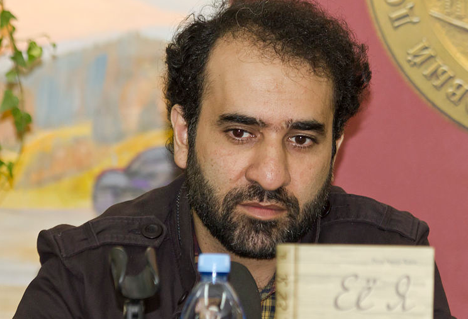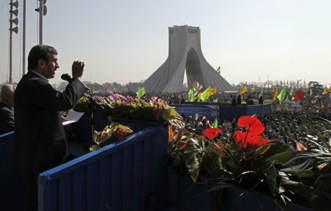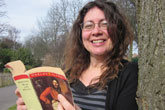Ayatollah Khamenei has a lot of respect for Russian literature

Reza Amirkhani: "Ayatollah Khamenei respects Russian literature very much, ‘War and Peace,’ for example". Source: A.Savin / wikipedia.org
It’s not very often that a book by a Iranian author is published in Russia. ‘Ermia,’ the first and most well-known novel of Reza Amirkhani was translated into Russian by Alexander Andryushkin, a noted Russian-Farsi translator. The translation took two years. In a candid interview, Amirkhani talks about literature and religion in Iran.
You write a lot about religious revival. Is it important for people in today's Iran?
Of course. In the Islamic Republic, a new form of traditional religion is about to be formed. The state shows how you can take the best from the religious traditions and create something of your own on this basis. It feels to me in general that religion must change. Today, we see too many conflicts between tradition and the modern life, and they lead to the emergence of extremist movements, such as "Al-Qaeda".
Once, during my trip in Afghanistan, I met an old Salafist (a follower of a more rigid form of Islam) asked him what he dreams about. The answer shocked me. “I would like to buy a box of sweets, mix those with rat poison and bring it to our school for girls, so that women would understand that education is not required for them,” said the old man.
In order to prevent such savagery it is necessary to reconcile the sacred tradition and modernity. Iran is also a religious country, but we than half the students pursuing higher education are women, and there are more female writers than male.
You have traveled together with the supreme ruler of Iran Ayatollah Khamenei. What kind of person is he?
I can tell from the point of view of a writer: he devotes much time to literature. His interest in contemporary Iranian fiction, despite his stirring life, is very high. He also, by the way, respects Russian literature very much, ‘War and Peace,’ for example. In his youth, he was reading ‘Quiet Flows the Don’ by Sholokhov. Actually, his interest in literature gave a chance to several Iranian writers to accompany the supreme ruler on the trip.
In that case, it must be that writers are treated very well in Iran?
On the one hand - yes. On the other hand, publication of books is done in very small quantities, on average - 2-3 thousand copies. Bestsellers are issued in the amount of 100,000 or rarely 200,000 copies. Although, the international practice is to publish the most read books in the amount of 10 percent of the population. In Iran, there are 70 million people, that is, 700,000 copies of bestsellers should be published. The writer’s profit wherein is between 8 and 25 percent of the proceeds of the sales, and the percentage varies depending on the author's fame. In principle, this would be enough for living, but with no superfluities. Becoming a scenario for a movie could be a great support but this is a rare stroke of luck.
‘Ermia’ is an Iranian novel about the search of God with a frame of the Shah and the Ayatollah. The story of a Tehran family Fattah begins in 1933, and ends at the end of the last century. Thus, the background events first are connected to Reza Shah Pahlavi and his European reforms when girls at the school were forced to be with their heads uncovered. Then the Iranian revolution in 1979, the Iran-Iraq war of 1980-1988.
However, the book is not primarily about the history, but about finding yourself and God - something that literary critics call "an introspective prose“
Love remained platonic. The woman was killed by a shell during the Iran-Iraq war, and the man buried himself alive. “To whom you love - abstain from him or her, and die as a martyr.” This is - the comprehension of God through chastity and fidelity.
First published in Russian in Izvestia.
All rights reserved by Rossiyskaya Gazeta.
Subscribe
to our newsletter!
Get the week's best stories straight to your inbox

